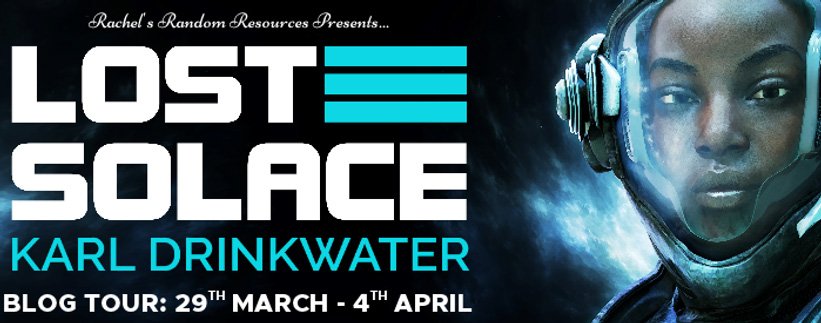Obsessed with learning the origins of the cosmos, the actual meaning of life, and the true purpose of civilization, a fine Scotsman named Fingal T. Smyth dedicates himself to the study of Plato’s most extraordinary ideas.

Welcome to the November 13th stop on the blog tour for On the Threshold by M. Laszlo with Goddess Fish Promotions and welcome back, M. Laszlo! Be sure to follow the rest of the tour for spotlights, reviews, more guest posts, and a giveaway. More on that at the end of this post.
Please note that this post contains affiliate links, which means there is no additional cost to you if you shop using my links, but I will earn a small percentage in commission. A program-specific disclaimer is at the bottom of this post.
Author Guest Post
Topic: Discuss the world you’ve created for the book
I divided my book into four chronological sections and created four fairly distinct worlds. They are as follows: Scotland in the 1900’s; Scotland, Paris, and Berlin in the 1920’s; Connecticut, Saint Helena, and Africa in the 1940’s; and finally, Connecticut and Hollywood in the 1960’s.
In order to create those different chapters in time, it was incumbent on me to do a great deal of research. How to let the work be unrealistic in any way? If you love history, you’ll want to recreate it as accurately as possible.
All that notwithstanding, a big part of me felt the urge to introduce at least some fantasy or magical realism to the story. And in order for those elements to work, decisions had to be made carefully and thoughtfully. Just as importantly, the magic elements had to be suffused by the history itself so that a skeptical reader would not have to necessarily concede that the magic had even happened. It was important to keep the magic elements ambiguous and open to interpretation. All this probably follows most from my love of history and my reluctance to present history falsely. In addition, the thought occurs that the very best science fiction tends to be entirely realistic or plausible. That type of writing will always be superior to the type of space operas in which anything can happen. If anything can happen, then nothing can happen. Generally speaking, the reader just doesn’t buy into the tale nor does the reader find any of the characters at all relatable.
The best thing about letting history guide my world is that I didn’t really have to conceive of anything all that implausible. By beginning the tale in 1900’s Scotland, the setting itself afforded me the opportunity to put my character into a pleasing castle. By moving through the 1920’s, Paris and Berlin could appear dark and dreamlike. Never once did I feel I ought to make either city bland or prosaic. The cities of the 1920’s looked different and had a real magic or romantic quality about them. They were not as overcrowded and as ugly as modernity has made them appear in our own time. In addition, it was fun to write about Africa in the 1940’s. Though colonialism had already come to the continent and had already wrought an awful legacy, nevertheless, the cold war had not yet obliterated so many of the cities and cultures. Most of the excesses of modernity appear in the final section, which takes place in the sixties. Still, there is a charm to writing about that decade. For example, the automobiles had a distinctive look. Little things like that made it fun to recreate the era. Without having embraced the idea of history, there just wouldn’t have been any good reason to have all those old cars in the story.
Finally, my love of history rather obliges me to say a word about time-travel fiction. I never liked time-travel stories because it always seemed to me that if the author was so fascinated by this or that past era or this or that speculative future time, then the author should have just thrown the time machine out and set the story in that pleasing period. Once an author recreates that period, the history and/or speculative element will provide all the allure—and there is no need for time travel. Perhaps my inborn prejudice against time-travel stories explains why I lampoon the idea so much in the final section.
About the Book

On the Threshold
by M. Laszlo
Published 9 February 2024
AIA Publishing
Genre: Historical Science Fiction
Page Count: 342
Add it to your Goodreads TBR!
Obsessed with learning the origins of the cosmos, the actual meaning of life, and the true purpose of civilization, a fine Scotsman named Fingal T. Smyth dedicates himself to the study of Plato’s most extraordinary ideas. Convinced of Plato’s belief that humankind possesses any and all innate knowledge deep within the collective unconscious mind, Fingal soon conducts a series of bold, pioneering occult-science experiments by which to resolve the riddle of the universe once and for all. However, Fingal forgets how violent and perilous the animal impulses that reside in the deepest recesses of the unconscious mind. And when Fingal unleashes a mysterious avatar of his innate knowledge, the entity appears as a burning man and immediately seeks to manipulate innocent and unsuspecting people everywhere into immolating themselves. Now, with little hope of returning the fiery figure into his being, Fingal must capture his nemesis before it destroys the world.
Amazon US | Amazon CA | Amazon UK | Publisher
Excerpt
Autumn, 1907: late one morning, some kind of torrid, invisible beast seemed to wrap itself all around Fingal T. Smyth’s body. Each one of his toes twitching fiercely, he exited the castle and scanned the distant, Scottish Highlands. Go back where you came from. As the entity wrapped itself tighter all about his person, Fingal blinked back his tears. I’m melting, I am. Aye, it’s the heat of fusion.
Gradually, the beast’s heartbeat became audible—each pulsation. At the same time, too, the illusory heat of transformation emitted an odor as of oven-roasted peppercorns dissolving in a cup of burnt coffee.
Over by the gatehouse, Fräulein Wunderwaffe appeared—the little German girl wearing a plain-sewn robe and square-crown bowler. In that moment, she no longer seemed to be a sickly child of seven years: her inscrutable expression resembled that of a wise, indifferent cat.
Perhaps even some kind of lioness. Fingal cringed, and he recalled a fragment of conversation from three weeks earlier.
“She suffers from a most unnatural pathology, an anguished, maniacal obsession with cats,” Doktor Hubertus Pflug had explained. “Ever since the poor girl was a baby, she has always regarded it her fate to one day metamorphose into a glorious panther, for she believes herself to be ein Gestaltwandler. Do you know this word? It means shapeshifter and refers to someone who possesses the power to take the form of anything in nature.”
The heat radiated up and down Fingal’s spine now, and his thoughts turned back to the present. Aye, it’s a change of phase. I’m melting into a chemical compound. Despite all, he greeted the girl and willed himself to flash a grin.
About the Author

M. Laszlo is an aging recluse who lives in Bath, Ohio. Rumor holds that his pseudonym is a reference to Victor Laszlo, a character in the classic film Casablanca. On the Threshold is his first release with the acclaimed, Australian hybrid house AIA Publishing. Oddly, M. Laszlo insists that his latest work, On the Threshold, does in fact provide the correct answer to the riddle of the universe.
Giveaway Alert!
M. Laszlo will be awarding a $10 Amazon/BN gift card to a randomly drawn winner.
| Sept 4 | Kenyan Poet | Sept 4 | The Pen and Muse Book Reviews |
| Sept 11 | Sandra’s Book Club | Sept 18 | The Avid Reader |
| Sept 18 | Long and Short Reviews | Sept 25 | Fabulous and Brunette |
| Oct 2 | Sybrina’s Book Blog | Oct 9 | Literary Gold |
| Oct 16 | Dawn’s Reading Nook | Oct 23 | Lisa Haselton’s Reviews and Interviews |
| Oct 30 | Gina Rae Mitchell | Nov 6 | Momma Says: To Read or Not to Read |
| Nov 13 | Westveil Publishing | Nov 20 | The Key of Love |
Disclaimer: As an Amazon Associate I earn from qualifying purchases.



Thank you for featuring ON THE THRESHOLD today.
Love the cover art. Looks amazing.
This looks like a great read.